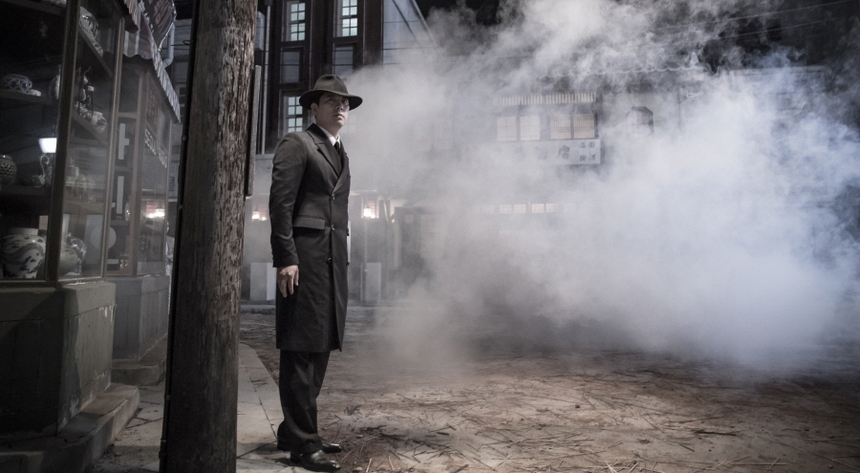BiFan 2019 Review: THE 12TH SUSPECT, Stagey Mystery Explores Oppressive History

This year's BiFan came to a close with a trip back to the Japanese Occupation Era in the whodunnit The 12th Suspect. Kim Sang-kyung leads a cast filled with indie cinema stalwarts in a tense single location murder mystery that explores issues of oppression and cultural erasure during Korea's tumultuous 20th century history.
A teahouse favoured by Seoul's elite but impoverished artists in the Myeongdong neighbourhood becomes an interrogation room when a detective sits among them towards the end of the Colonial Era. A poet and regular customer of the establishment has died and the eleven other people within its walls, a mix of regular patrons and teahouse owners, all become prime suspects in the detective's eyes, particularly as they all appear to be hiding something. As buried truths and concealed biases come to the fore, a quiet interrogation begins to make way for an increasingly volatile scene where no one is safe.
With its large cast, limited location and mostly realtime narrative, The 12th Suspect in many ways resembles a stage play. This is particularly evident in the opening of the film, which employs a long and meandering take that moves around the various conversations within the teahouses in a rather inorganic way as we get to know most of the characters, which creates a very dry effect. The murder mystery is established quickly but it takes some time to connect all the characters to it.
Yet when the framework is established and tensions begin to fill the frame, the film gradually becomes more cinematic and engaging. Combined with the narrative's historical and social concerns, which become more focused as the story progresses, director Ko Myoung-soung is able to generate some momentum as the narrative wears on, which is more or less maintained until the climax.
The narrative may take place prior to the end of World War II, but the location of the teahouse, on Namsan in Central Seoul, and the detective's aggressive methods to extract information from citizens without so much as a warrant, will immediately remind local viewers of the oppressive actions of the Korean Central Intelligence Agency, which notoriously tortured students and anyone with remote connections to anti-anti-government protests in secret facilities in the same area throughout the 1960s, 70s and 80s. The 12th Suspect explores a wealth of local themes, but given the specific nature of many of the references, whether historical or literary, and the stagey feel, the film at times runs the risk of alienating audiences less well versed in Korean culture.
Kim Sang-kyung is the de facto lead in this ensemble piece as the investigator trying to solve the murder mystery. However, though he plays a detective, much like he has many times before in his most famous roles, such as Memories of Murder or Montage, Kim plays against type as the villain of the story, since he represents the colonial oppressors as he uses his position to torment Korea's impoverished intelligentsia.
The 12th Suspect has the making of an engaging mystery but, as a result of its stilted theatrical style and literary pretensions, it never quite comes together as a gripping yarn, though it remains worth watching for the performances. The film marks the narrative feature debut of Director Ko, who previously made the documentary Good Bye in 2010 and the short As the Sun Sets, which was presented at the Busan International Film Festival in 2014.







